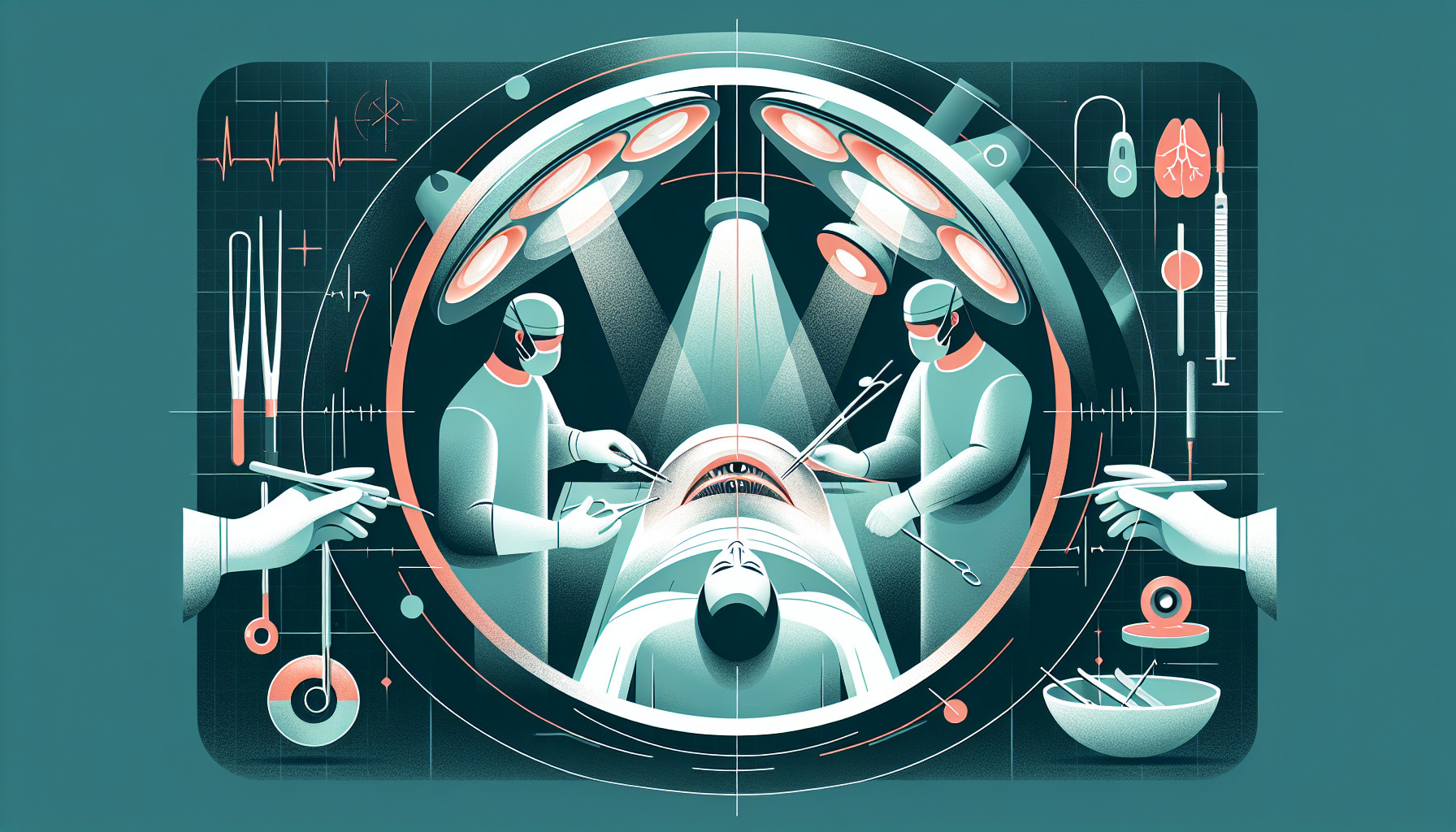Our Summary
This research paper discusses cataract surgery, which is one of the most common operations done in the U.S. The need for cataract surgery is determined by the person’s ability to do daily tasks like reading, driving, and watching TV. The surgery can also potentially eliminate the need for glasses due to the availability of advanced lens options. The paper also mentions that patients can now choose between traditional methods and new laser-assisted procedures. The authors conclude that cataract surgery is an effective and continuously improving method for restoring vision.
FAQs
- What determines the need for cataract surgery according to this research paper?
- Can cataract surgery potentially eliminate the need for glasses?
- What are the different methods of cataract surgery mentioned in the paper?
Doctor’s Tip
One helpful tip a doctor might tell a patient about cataract surgery is to follow all pre-operative instructions provided by the surgeon. This may include avoiding certain medications, fasting before the procedure, and arranging for transportation to and from the surgery center. By following these instructions, patients can help ensure a successful outcome and reduce the risk of complications.
Suitable For
Patients who are typically recommended for cataract surgery include those who are experiencing significant vision loss or impairment due to cataracts. This can manifest as difficulty reading, driving, watching TV, or performing other daily tasks. Additionally, patients who have cataracts that are affecting their quality of life or causing discomfort may also be recommended for surgery.
It is important for patients to undergo a comprehensive eye examination by an ophthalmologist to determine the severity of their cataracts and whether surgery is necessary. Factors such as the progression of the cataracts, the impact on visual acuity, and the patient’s overall health and lifestyle goals will also be taken into consideration when recommending cataract surgery.
Overall, cataract surgery is a safe and effective procedure that can greatly improve a patient’s vision and quality of life. With advancements in technology and surgical techniques, patients now have more options for restoring their vision and reducing their reliance on glasses.
Timeline
Before cataract surgery:
- Patient notices symptoms of cataracts such as blurry vision, glare, and difficulty seeing at night.
- Patient visits an eye doctor for a comprehensive eye exam to confirm the presence of cataracts.
- Eye doctor discusses treatment options with the patient, including the possibility of cataract surgery.
- Patient undergoes pre-operative tests and measurements to determine the appropriate lens for implantation.
After cataract surgery:
- Patient arrives at the surgical center or hospital on the day of the procedure.
- Patient undergoes cataract surgery, which typically takes less than an hour and is performed under local anesthesia.
- Patient may experience some discomfort or irritation in the eye immediately after surgery.
- Patient is given post-operative instructions on how to care for the eye and prevent infection.
- Patient attends follow-up appointments with the eye doctor to monitor healing and vision improvement.
- Patient may gradually notice improved vision and reduced reliance on glasses in the weeks following surgery.
What to Ask Your Doctor
Some questions a patient should ask their doctor about cataract surgery include:
- What is the success rate of cataract surgery?
- What are the potential risks and complications of the surgery?
- What type of anesthesia will be used during the surgery?
- How long is the recovery period after cataract surgery?
- Will I need to wear glasses after the surgery?
- What type of lens implant options are available to me?
- How long will the effects of the surgery last?
- Will I need any follow-up appointments after the surgery?
- What can I expect in terms of vision improvement after the surgery?
- Are there any lifestyle changes I need to make before or after the surgery to ensure optimal results?
Reference
Authors: Yoo SH, Zein M. Journal: Med Clin North Am. 2021 May;105(3):445-454. doi: 10.1016/j.mcna.2021.01.002. Epub 2021 Apr 2. PMID: 33926640
